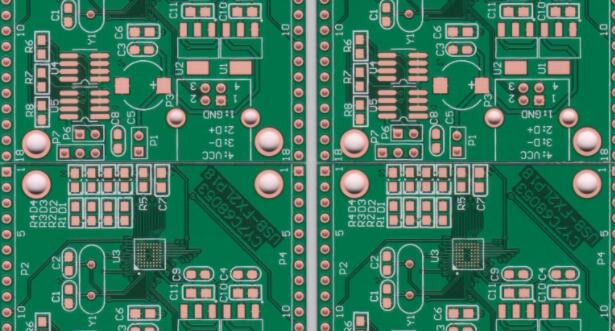The composition and main functions of the circuit board
The PCB is made of different components and a variety of complex process technologies. Among them, the structure of the PCB circuit board has a single-layer, double-layer, and multi-layer structure. The production methods of different hierarchical structures are different.
This article will introduce in detail: the names and corresponding uses of the components of the PCB circuit board, the production of single-layer, double-layer, and multi-layer structures of the PCB circuit board and the main functions of various types of work levels.
First, the printed circuit board is mainly composed of pads, vias, mounting holes, wires, components, connectors, filling, electrical boundaries, etc. The main functions of each component are as follows:
Pad: A metal hole used to solder the pins of components.
Via: A metal hole used to connect the pins of components between layers.
Mounting hole: used to fix the printed circuit board.
Wire: The copper film of the electrical network used to connect the pins of the components.
Connectors: components used to connect between circuit boards.
Filling: Copper coating for ground wire network, which can effectively reduce impedance.
Electrical boundary: used to determine the size of the circuit board, all components on the circuit board cannot exceed the boundary.

Second, the common layer structure of printed circuit boards includes three types: single layer PCB, double layer PCB, and multi layer PCB. A brief description of these three layer structures as follows:
(1) Single-layer board: a circuit board with copper on one side and no copper on the other side. Usually components are placed on the side without copper, and the side with copper is mainly used for wiring and soldering.
(2) Double-layer board: a circuit board with copper on both sides, usually called the top layer on one side and the bottom layer on the other side. Generally, the top layer is used as the surface for placing components, and the bottom layer is used as the welding surface for components.
(3) Multilayer board: A circuit board that contains multiple working layers. In addition to the top and bottom layers, it also contains several intermediate layers. Usually, the intermediate layer can be used as a wire layer, a signal layer, a power layer, and a ground layer. The layers are insulated from each other, and the connection between the layers is usually achieved through vias.
Third, the printed circuit board includes many types of working layers, such as signal layer, protective layer, silk screen layer, internal layer, etc. The functions of each layer are briefly introduced as follows:
(1) Signal layer: Mainly used to place components or wiring. Protel DXP usually contains 30 middle layers, namely Mid Layer1~Mid Layer30. The middle layer is used to arrange signal lines, and the top and bottom layers are used to place components or deposit copper.
(2) Protective layer: It is mainly used to ensure that the parts of the circuit board that do not need to be tinned are not tinned, so as to ensure the reliability of the operation of the circuit board. Among them, Top Paste and Bottom Paste are the top solder mask and the bottom solder mask respectively; Top Solder and Bottom Solder are the solder paste protection layer and the bottom solder paste protection layer, respectively.
(3) Silk screen layer: mainly used to print the serial number, production number, company name, etc. of the components on the printed circuit board.
(4) Internal layer: Mainly used as signal wiring layer. Protel DXP contains 16 internal layers.
(5) Other layers: mainly include 4 types of layers.
Drill Guide (drilling azimuth layer): Mainly used for the position of drilling holes on the printed circuit board.